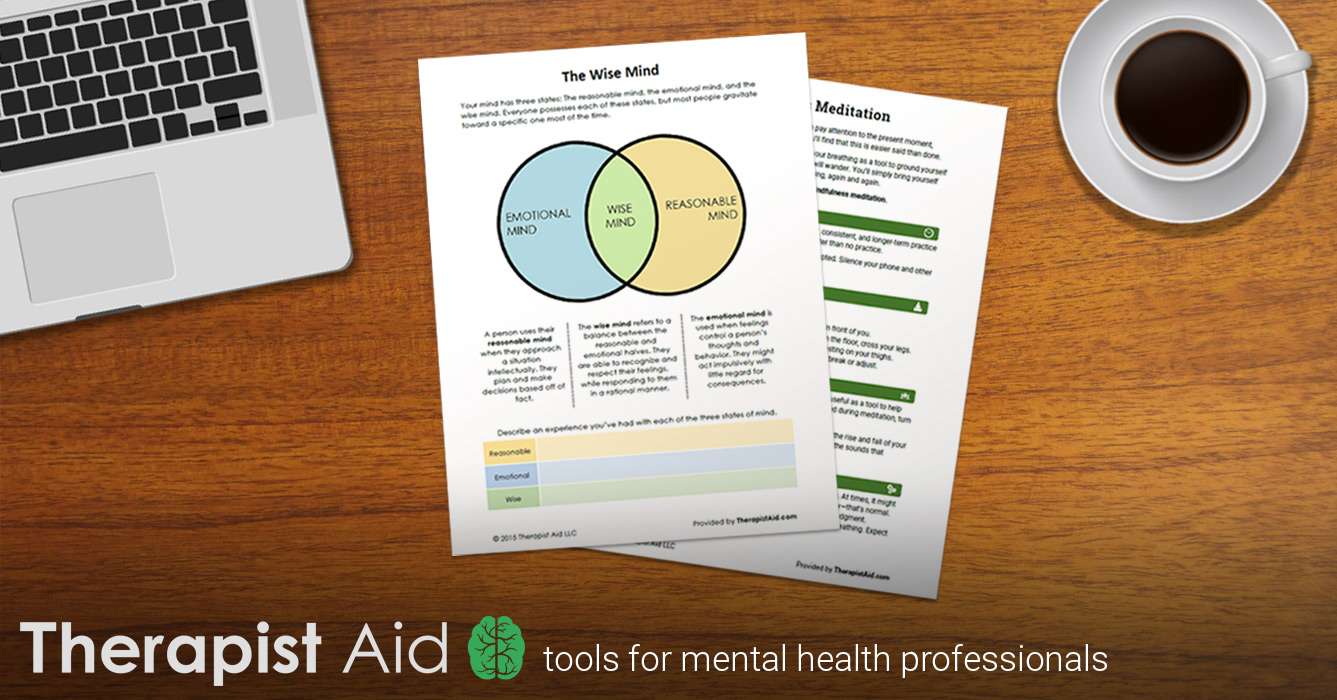What does the research say?
Scientific research has offered various reasons as to why swimming and being near water outdoors positively benefits our mental health and wellbeing.
1. Releases feel good hormones
Swimming, like all exercise, releases endorphins in your brain. These are the hormones that make you feel good. They help to increase positivity and bring about a sense of wellbeing and happiness.
Some research has shown that swimming may help to treat stress. For example, a few studies in rats have found that swimming can help to promote the growth of new brain cells in parts of the brain that break down during chronic (long-term) stress.
2. Boosts brain health
A healthy blood flow is important for keeping your brain healthy and can protect it from harmful toxins. One small study has found that just being in water increases the blood flow to the brain. The study participants were placed in water up to chest height. Scientists then measured blood flow to the brain while they were in the water, and when they drained the pool. These findings suggest that swimming boosts brain health.
3. Outdoor swimming benefits
During the pandemic when swimming pools were closed, you may have read news reports about a big surge in outdoor swimming (also called ‘wild swimming’). It seems that immersing yourself in natural water outdoors is particularly good for mental wellbeing too.
A more recent small study has found that cold water swimming may also be an effective treatment for depression. The theory behind this is that one form of stress, such as the shock of cold water, helps the body to respond better to stress linked with depression and anxiety.
4. Soothes your mind and reduces anxiety
It’s thought that swimming is a particularly good way to relax your body, soothe your mind and reduce anxiety. Some spas even play relaxing music that you can only hear when you put your head under the water!
People who live closer to the coast have also reported higher levels of good health and wellbeing. But, research on this is limited. More studies are needed to find out if this positive mental wellbeing is due to being by the sea, or other factors.
5. The calming effect of the colour blue
The colour blue is often thought of as calming – especially the sky and the sea on a beautiful day. Being near, in or under water is also thought to make you happier and healthier. But the findings on this are mixed and limited.
You might also have heard of the term ‘biophilia’, which means love of nature. It refers to our inbuilt desire to be near and connected with nature. This phenomenon may explain why we feel positive and happy when we’re by the sea or near water.
6. Encourages socialising
Swimming is a form of exercise you can do by yourself. Yet swimming pools and leisure centres do encourage socialising. Socialising is great for your brain and sense of wellbeing. Whether it’s meeting in the cafe afterwards, taking part in a swim challenge or doing water aerobics, leisure centres are great places to meet new people.
Mental health benefits of swimming: what other people say
“1t makes me feel accepted” – 24-year-old British Paralympic swimmer, Brock Whiston.
“When I swim, it’s just me and the water with no other distractions. I don’t feel as though I have a disability. No one looks at me differently – I feel included and proud of what I can achieve.”
“Swimming clears my head” – Katie Wilson, a 43-year-old working mum.
“I try to swim at least twice a week first thing in the morning. Swimming laps in the pool has an almost hypnotic effect, clearing my head and giving me the time to think over whatever comes to mind. I leave the pool ready for the day ahead, with my body and mind energised and focused.”
“I find it therapeutic” – Bupa Health Adviser, Perry Swann, who is 24 and has a level 1 qualification in teaching swimming.
“Whether it’s training, racing or for leisure, swimming always helps me disconnect from everything else. For me it’s a form of meditation as I’m able to feel the water and forget about everything else while I’m there.”
“I’ve always liked the sense of community that you find at swimming pools too. I often see people swimming and talking to others, regardless of whether they know each other.”
These quotes highlight the wonder of swimming – how something so simple can create such a variation of feelings and effects between people.
Ways to get swimming
Why not take some time to sit back and think about what swimming means for you? If you haven’t swam for a while, think about what it is that you liked about it. Here’s a few things to consider.
- Check out your local leisure centre for swim times. Timetables are generally regular, but they might change during the school holidays.
- Have you lost your confidence in water? Or perhaps you want to challenge yourself with a spot of outdoor swimming? Get in touch with your leisure centre and take advantage of the adult swimming lessons they may have on offer.
- If you’re after a relaxing spa break, have a look on voucher sites. There are often lots of deals on spa days. Maybe take a friend or family member with you?
- When swimming in the sea, stay in your depth and be aware of riptides and strong currents. Put your safety first and swim in a lifeguarded area.
Other helpful websites
- Swim England
www.swimming.org - The Beach Guide: UK swimming beaches
www.thebeachguide.co.uk/activities/swimming - Wild swimming
www.wildswimming.co.uk
If you’re living with depression or anxiety, you may have heard that exercising helps to manage symptoms. Is it also the case with swimming?
Both anxiety and depression benefit from professional support. It’s possible to manage symptoms and find relief. Self-care in the way of nutrition and exercising can help as well.
Swimming for anxiety and depression is a science-backed strategy to help you cope with symptoms. But you may want to keep a few things in mind before starting.
Benefits of swimming for anxiety
Evidence indicates that regular physical activity, in general, boosts your mood, helps you cope with stress, and reduces your signs of anxiety. Swimming is no exception.
Research shows that swimming consistently helps reduce signs of anxiety by helping you manage the stress response. The release of endorphins, serotonin, and dopamine also helps you feel more at ease.
Swimming may also help you feel more grounded because, besides having the benefits of physical activity, it may engage your senses, which can help you manage anxiety.
How to practice swimming for anxiety and depression
If you’re trying to manage symptoms of anxiety and depression, a regular swimming routine can help.
It’s highly advisable that you consult with a health professional before engaging in any exercise routine, particularly if you’re not used to having one. They can help you come up with an individualized plan that responds to your needs.
Initially, consider practicing swimming for two and half hours per week.
Research suggests that each session should last between 30 and 60 minutes, depending on your fitness level and needs.
If possible for you, try to swim at a moderate to high intensity pace. You could swim to your max capacity for 30 seconds and then swim at a slow pace for 1 minute. If not possible, low intensity swimming can also offer mental health benefits. You may just want to add a few more minutes per week.
Swimming in cold water may also offer additional benefits for your mood.
Treatment for depression and anxiety
Living with symptoms of anxiety or depression can impact all levels of your life. Both anxiety and depressive disorders often require professional support to avoid the intensification of symptoms.
Even though self-care is key in managing your mood, seeking the help of a mental health professional is highly advisable.
Traditional treatments may include psychotherapy and, in some cases, medication.
If you’ve ever felt refreshed, relaxed. and ready to tackle the day after a swim, you’re not alone.
A 2012 survey of nearly 1,200 swimmers aged 16 to 45 around the world conducted by swimwear manufacturer Speedo investigated how swimmers felt about their sport. According to the survey:
- 74 percent of respondents said swimming helps release stress and tension.
- 68 percent of respondents said being in the water helps them feel good about themselves.
- 70 percent of respondents said swimming helps them feel mentally refreshed.
But there’s more to these findings than just a self-reported sense of relaxation or calm. Indeed, science is beginning to unravel some of the mental health benefits of swimming, and some researchers are investigating whether swimming could eventually become an actual treatment protocol for depression and anxiety.
Take, for example, a recent case study published in British Medical Journal Case Reports about a 24-year-old British woman named Sarah who has major depressive disorder and anxiety. Medications made her feel “off” and groggy, so with the encouragement and supervision of Chris van Tulleken at the University College London, Sarah began exploring cold water swimming as a form of hydrotherapy.
After the first session, Sarah noted symptom improvement, and over the next several weeks, she continued swimming regularly in open water. Before long, she was able to taper off her medications and two years later she was still drug-free and managing well with her swimming-as-medicine protocol.
Although investigation is still ongoing as to whether pool swimming can offer the same benefits as open water swimming, the fact remains that humans want to be close to water.
In his bestselling 2014 book “Blue Mind: How Water Makes You Happier, More Connected and Better at What You Do,” Wallace J. Nichols, a marine biologist, detailed the psychological effect being in or near water can have. In short, he wrote that water soothes the human psyche and provides cognitive and emotional benefits that may be difficult to quantify exactly but are nevertheless very real.
Researchers at the University of Exeter in the U.K. are continuing to investigate exactly how water helps boost mental health and recently found that something as simple as watching a video of the ocean while exercising on a stationary bicycle might elevate your mood. It seems logical then to suggest that swimmers who get their workout in the water are cutting right to the chase on this benefit.
But why and how can some people find such powerful benefits from swimming? Here’s what we know so far about how swimming supports good mental health.
A Boost in “Feel-Good” Brain Chemicals
Exercise boosts production of beneficial chemicals in the brain and body that can significantly alter how you feel. Endorphins, in particular, are a group of hormones in the brain and nervous system that stimulate cells’ opiate receptors, which can cause an analgesic, or painkilling, effect. That’s right—runner’s (or in this case swimmer’s) high is your body’s own built-in painkiller.
In addition, swimming seems especially adept at influencing mood by increasing the number of certain neurotransmitters in your brain, namely serotonin, noradrenalin, and dopamine. These “feel-good” brain chemicals are boosted by vigorous physical activity and also increase steroid reserves, which allows you to become more resilient to stress.
A Boost in Brain Cells
In addition to hormones and brain chemicals that can help you better regulate mood, aerobic exercise has also been shown to increase the levels of brain-derived neurotrophic factor, a protein in your brain and spinal cord that promotes the survival, growth, and maintenance of neurons. John Ratey, a Harvard psychiatrist and author of “Spark: The Revolutionary New Science of Exercise and the Brain,” has described BDNF as being like “Miracle-Gro for your brain.”
Exercise, and swimming specifically, helps your brain increase its levels of BDNF. A number of studies in animals—rats and fish, specifically—have shown a clear correlation between swimming as exercise and increased levels of BDNF in your brain. These higher levels can have wide-ranging effects on cognition, memory, and mood regulation.
Boosting BDNF levels via exercise is also being investigated as a potential means of preventing or slowing the development of Alzheimer’s disease and other forms of dementia and age-related cognitive decline, all of which have depression as a symptom.
A Boost in Social Contact
For many swimmers, there’s a very important social element to swimming as well. Humans are an innately social species, and interacting with friends and loved ones is a key means of combating loneliness. Social contact is also being investigated as a means of combating age-related cognitive decline, depression, anxiety, and a host of other brain-based problems.
What’s more, swimming with a group, such as a Masters club, builds in accountability that can make sticking to your training regimen a little easier and more enjoyable.
A Boost In Sleep Quality
Sleep is one of the most important things you can do for your overall health and wellness every day. But according to a survey conducted by the American Psychological Association, stress may interfere with sleep. That 2013 survey found that on average, American adults report sleeping 6.7 hours per night, which is less than the minimum recommendation of seven to nine hours of sleep per night.
“In addition, 42 percent of adults report that their sleep quality is fair or poor, and 43 percent report that stress has caused them to lie awake at night in the past month,” the APA noted. Adults who sleep fewer than eight hours a night reported having higher stress levels and symptoms of stress in the preceding month.
But one of exercise’s most amazing benefits is how it can help you get better rest at night. Exercise helps you fall asleep more quickly and stay asleep longer, according to an article on Johns Hopkins Medicine’s website.
It’s not entirely understood exactly how exercise boosts sleep quality, but “moderate aerobic exercise increases the amount of slow wave sleep you get. Slow-wave sleep refers to deep sleep, during which the brain and body have a chance to rejuvenate. Exercise can also help to stabilize your mood and decompress the mind,” both of which can help make you feel more ready for sleep when the time comes to go to bed, Charlene Gamaldo, medical director of Johns Hopkins Center for Sleep at the Howard County General Hospital, is quoted as saying in the article.
Swimming is a great way to increase your body’s capacity for high-quality sleep, which in turn can help you feel less stressed out. When you work hard during the day and expend a lot of energy, naturally you’ll probably feel more tired later than if you just sat around all day.
And we’re not talking about hours on end of exercise, either. The Johns Hopkins Medicine article notes that “people who engage in at least 30 minutes of moderate aerobic exercise may see a difference in sleep quality that same night.”
Bottom line: When you exercise more, you sleep better, and that can help alleviate stress and anxiety.



